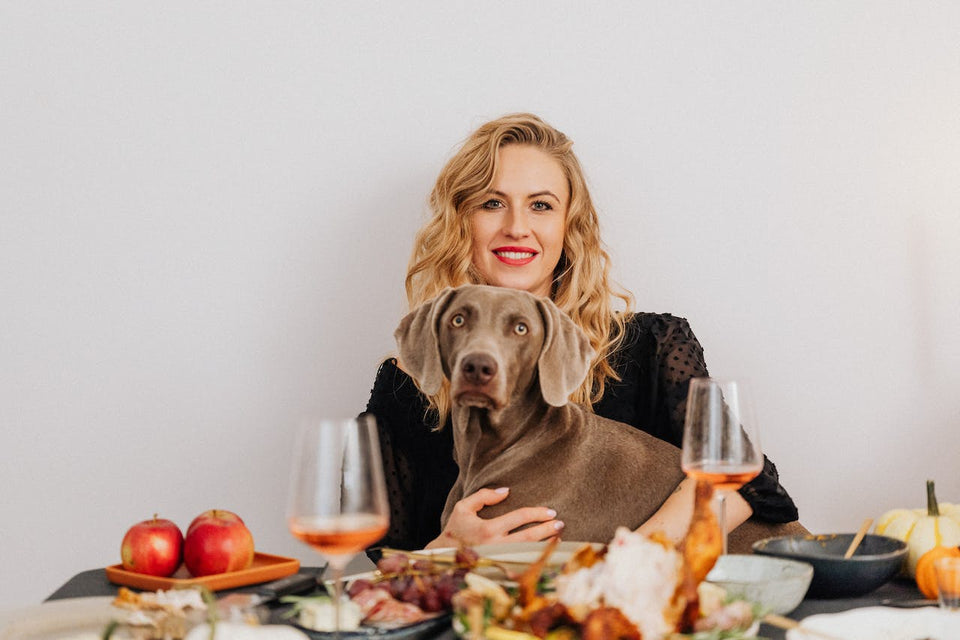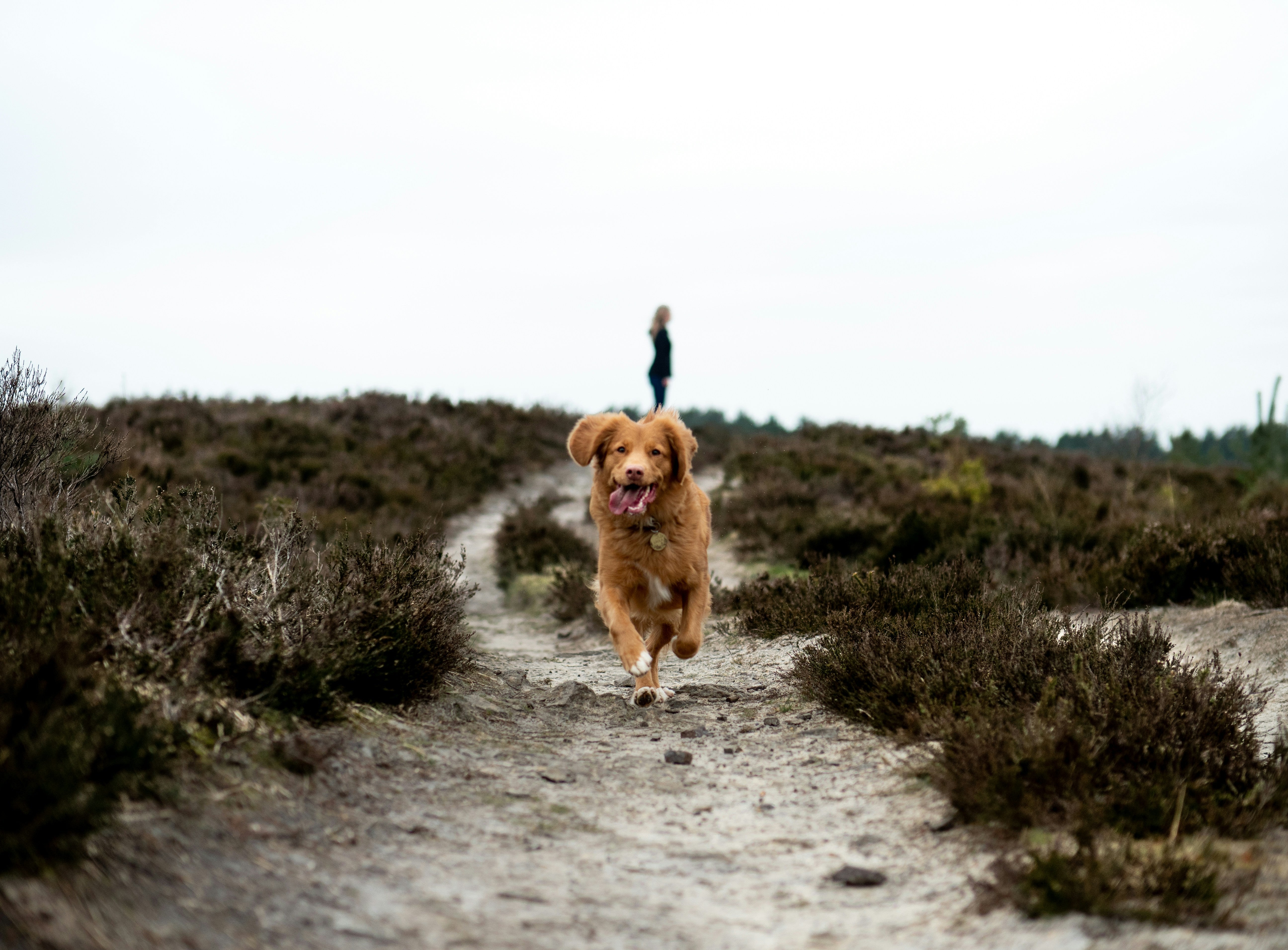
Thanksgiving Dog Treats: What Can Dogs Eat?

As Thanksgiving approaches, households across the country are buzzing with anticipation of the grand feast, and our four-legged friends are no exception. The tantalizing aromas and bustling kitchen activity can make any pooch wag its tail a bit faster. However, while we relish the holiday spread, it's essential to remember that not all Thanksgiving delights are suitable for our canine companions. Many traditional dishes, despite being delicious to humans, can be harmful or even toxic to dogs, necessitating careful consideration of what morsels we can safely share.
The idea of indulging our pets during festive seasons is heartwarming, but ensuring their safety is paramount. Recognizing which Thanksgiving treats are dog-friendly and which ones to keep out of paw's reach is crucial for a joyful and incident-free holiday celebration. In this guide, we'll explore a variety of Thanksgiving foods, shedding light on what's safe for dogs to consume and what's best left on the human plate. So, for those eager to include their pups in the holiday spirit without compromising their health, keep reading to become well-informed about the do's and don'ts of Thanksgiving dog treats.
Turkey: More than Just a Feast Centerpiece
Turkey often takes center stage at Thanksgiving feasts, revered for its delicious taste and nutritional profile. Abundant in lean protein, it's understandable why pet owners are keen to let their dogs have a taste. Yet, when sharing this meaty delight with your canine, specific guidelines should be adhered to. The ideal serving should be free from skin and fat, preferably boiled to maintain a minimal fat profile. Spicy additives, particularly those akin to hot sauces, are strictly off-limits. Also, be vigilant about seasonings; many, especially those with onion, garlic, or diverse spice blends like pepper, can be unsuitable. While most dogs might enjoy turkey without any issues, always be alert to potential allergic reactions, especially if they've never had poultry before. And while treating your furry friend is tempting, moderation is key. Their turkey intake should remain within the treat limit, which is typically less than 10% of their daily calorie requirement. Most crucially, turkey bones are a hazard; not only can they choke, but they might also cause internal damage.
Elevate your home's ambiance this holiday season with our Pet Odor Eliminator Spray. Unlike traditional deodorizers, Marlie Mist offers an all-natural, pet-safe approach to tackle odors. From pet beds to living room rugs, every spritz promises a burst of nature-inspired freshness.
Pumpkin: The Versatile Veggie with Caveats
Pumpkin is celebrated not just for its festive appeal but also for its potential digestive benefits for dogs. Many veterinary professionals have pointed out its usefulness in addressing certain digestive concerns. However, it's paramount to distinguish between the various pumpkin forms. The aroma of homemade pumpkin pie might captivate both humans and pets alike, but it's not a canine-friendly dish. Embrace unadulterated roasted pumpkin or go for 100% pure canned pumpkin. Pumpkin pie fillings or the pies themselves often have ingredients like nutmeg, which are not ideal for dogs. Plus, the elevated sugar and fat levels in pies might not sit well with your dog's digestive system.
Cranberry: Tangy and Tantalizing but Tread Carefully
Cranberries, with their zesty flair, can offer dogs a delightful culinary experience. Often, these berries are lauded for potentially supporting urinary tract health, enriched with a bounty of antioxidants. But caution is essential. Whole, raw cranberries might be cumbersome for dogs to process, and there's always a choking risk if not cut to size. Additionally, steer clear of cranberry sauces, which frequently have high sugar concentrations or even artificial sweeteners. If opting for dried versions, always ensure there are no hidden raisins, which can be problematic.
Green Beans: Nature's Nutrient-Packed Snack
Green beans are not just a wholesome snack but also a treasure trove of essential nutrients for dogs. They are refreshingly low in calories while being packed with essential vitamins and minerals that dogs might benefit from. The preparation mantra is simplicity. Avoid all forms of added salt, spices, or butter. Regardless of your choice—be it canned, fresh, or frozen—unsalted should be the norm. Thanks to their insoluble fiber, these beans not only assist digestion but also can potentially satiate dogs, supporting weight management.
Related Link: Why Do Dogs Like Belly Rubs So Much?
Carrots and Sweet Potatoes: Colorful Canine Cuisines

Carrots, teeming with vitamin A and fiber, are not just nutritious but also a crunchy pleasure for most dogs. Many commercial dog food blends incorporate them due to their nutritional value. You can serve them raw, particularly baby carrots, or cooked for an easier digestion. Sweet potatoes are another canine cherished vegetable, laden with essential vitamins and a good dose of fiber. As they find their way into numerous canine diets, serving them as a part of Thanksgiving, without additives, can be a treat.
Apples: A Crunchy, Nutritious Nibble
Dogs often gravitate towards apples, enticed by their perfect blend of sweetness and tartness. Besides being a delicious snack, they provide a decent amount of fiber and antioxidants. While they are mostly safe, it's vital to remove the seeds and core, which can be detrimental. Serving recommendations include thin slices or bite-sized chunks. For those looking to add a festive touch, a light sprinkle of cinnamon, always in moderation, could be a delightful twist.
Thanksgiving Foods to Keep Away from Dogs
While Thanksgiving is a time of gastronomic abundance, it's essential to discern what's safe for our furry companions. A few foods to keep on the "do not feed" list include:
- Onions and garlic
- Candy and sugary desserts
- Macadamia nuts
- High-fat and salty foods
- Grapes or raisins
- Chocolate and caffeine
- Wild mushrooms
- Pitted fruits
- Alcohol
- Any product containing xylitol
Feasting Safely with Your Dog

As Thanksgiving draws near, every pet parent's desire is to ensure their furry family member feels included in the joyous occasion. This guide has provided vital insights to help include our canine companions in the celebrations safely. While several holiday dishes can be transformed into delightful treats for our four-legged friends, it's paramount to tread with caution and steer clear of potentially harmful ingredients. By making informed choices, we guarantee that the festive feasting remains enjoyable and safe for everyone at the table, whether they walk on two legs or four.
Want a festive yet effective solution to pet odors? Turn to our Pet Odor Eliminator Spray, infused with invigorating Holiday Peppermint & Rosemary. Not only does it tackle stubborn smells naturally, but its pet-friendly essential oils also rejuvenate the air, ensuring every corner of your home feels festive and fresh.
Share this article
written by


